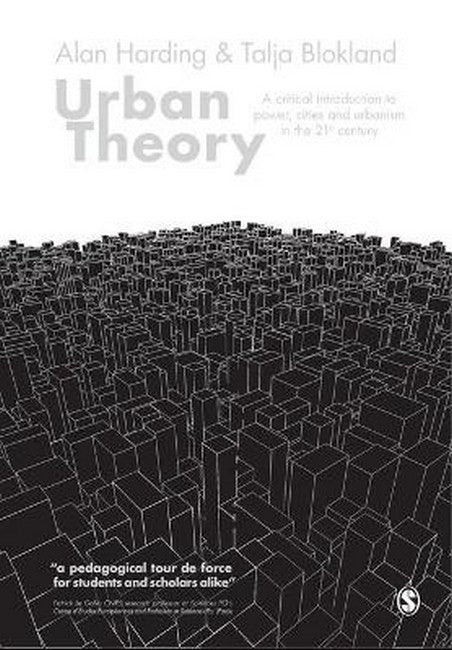Urban Theory
Urban Theory
SKU:9781446294529
Share
What is Urban Theory? How can it be used to understand our urban experiences? Experiences typically defined by enormous inequalities, not just between cities but within cities, in an increasingly interconnected and globalised world. This book explains: Relations between urban theory and modernity in key ideas of the Chicago School, spatial analysis, humanistic urban geography, and 'radical' approaches like Marxism Cities and the transition to informational economies, globalization, urban growth machine and urban regime theory, the city as an "actor" Spatial expressions of inequality and key ideas like segregation, ghettoization, suburbanization, gentrification Socio-cultural spatial expressions of difference and key concepts like gender, sexuality, race, ethnicity and "culturalist" perspectives on identity, lifestyle, subculture How cities should be understood as intersections of horizontal and vertical - of coinciding resources, positions, locations, influencing how we make and understand urban experiences. Critical, interdisciplinary and pedagogically informed - with opening summaries, boxes, questions for discussion and guided further reading - Urban Theory: A Critical Introduction to Power, Cities and Urbanism in the 21st Century provides the tools for any student of the city to understand, even to change, our own urban experiences.
About the Author
About the Author
Alan Harding is Professor of Public Policy and Director of the Heseltine Institute for Public Policy and Practice at the University of Liverpool Management School in the UK. Previously, he held posts at Manchester, Salford and Liverpool John Moores universities. His research interests are in urban and regional development, governance and policy and he has acted as an advisor on these issues for a wide range of leading agencies with interests in this field. Talja Blokland (1971) is an urban sociologist who has worked at Yale University, the University of Manchester and various Dutch universities. Since 2009, she has held the chair of Urban and Regional Sociology at Humboldt University in Berlin. Her publications include Urban Bonds (Polity 2003), Networked Urbanism (edited with Mike Savage, Ashgate 2008) and various articles on race and ethnicity in the city, poor neighbourhoods, urban violence, gentrification, urban middle classes and neighbourhood relations and everyday interactions.
Couldn't load pickup availability


